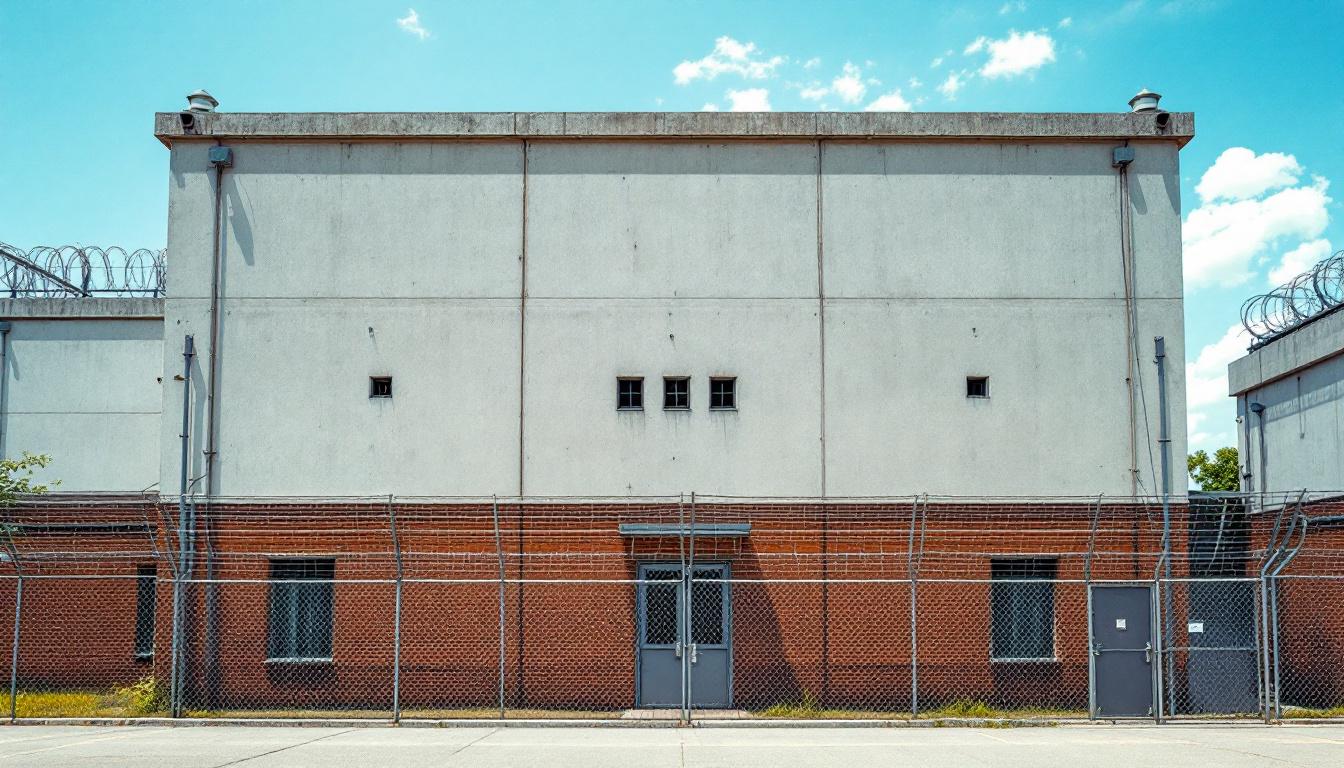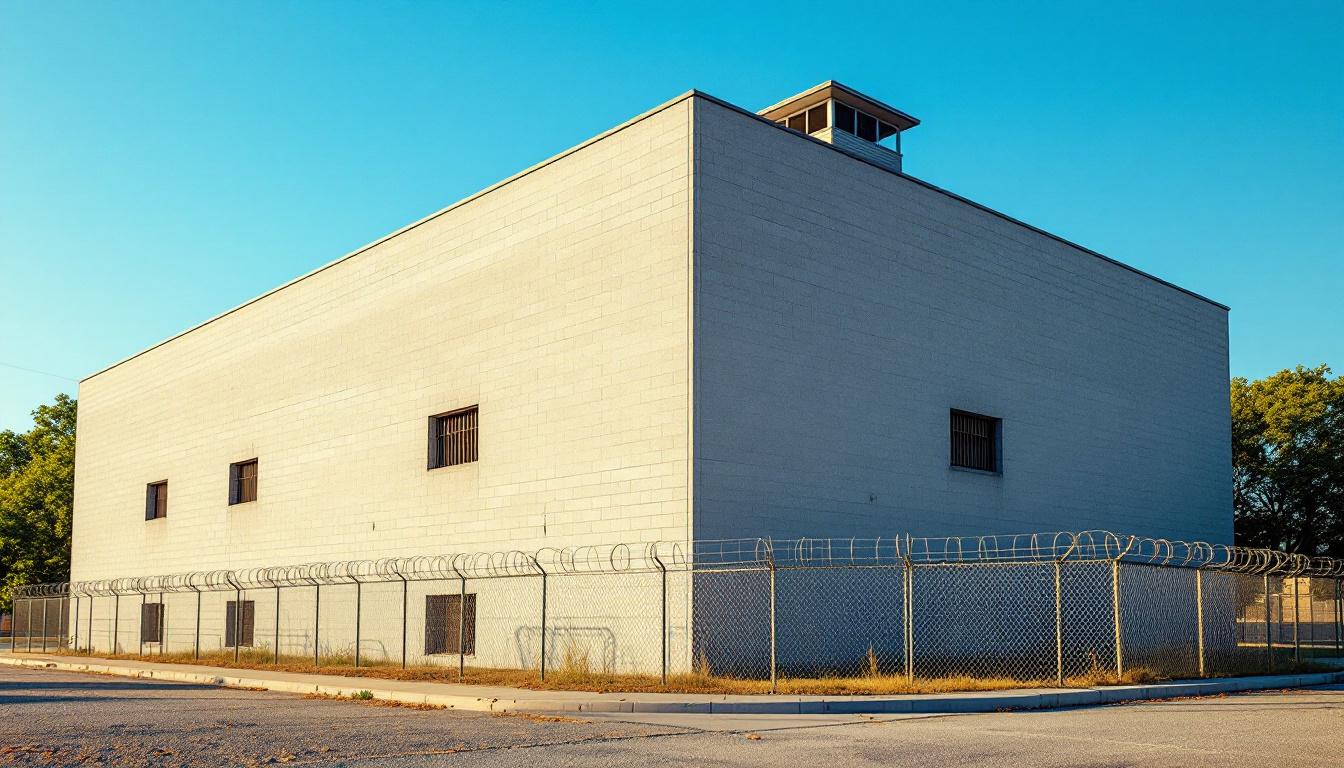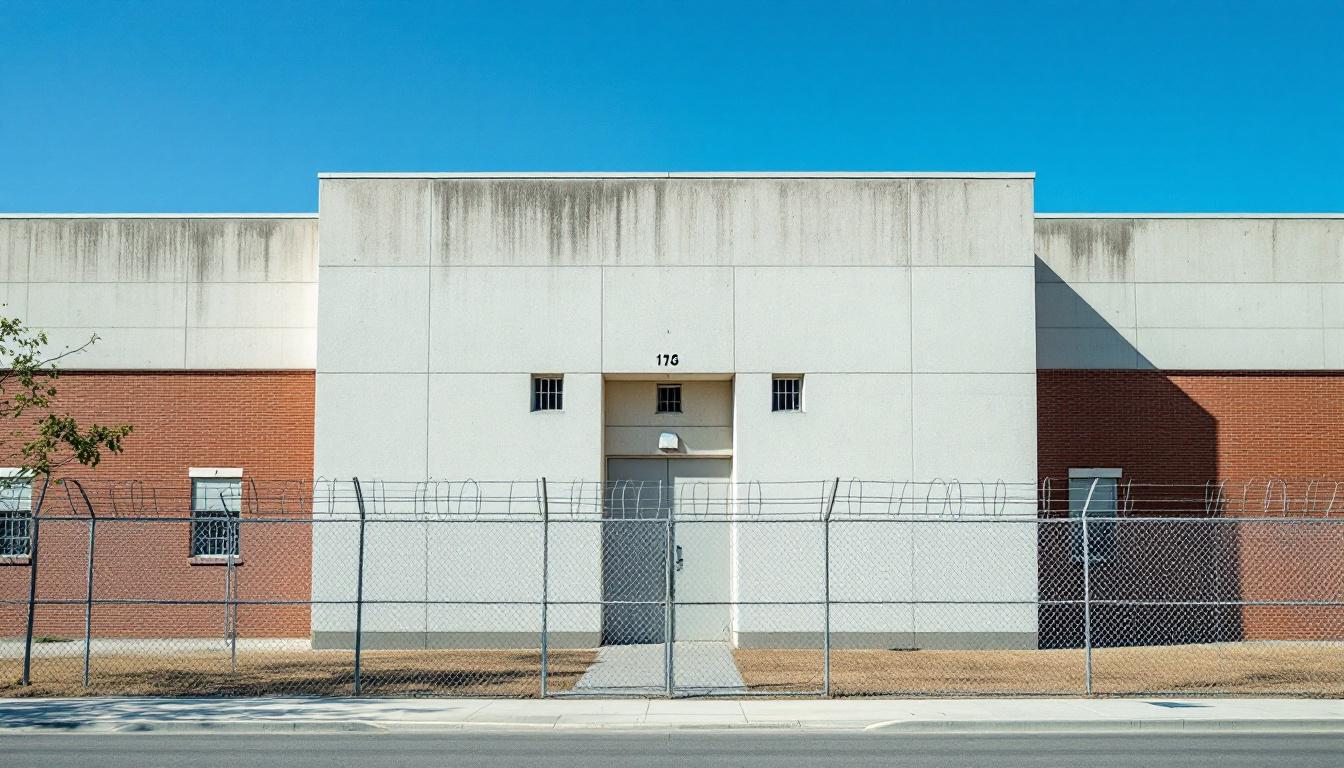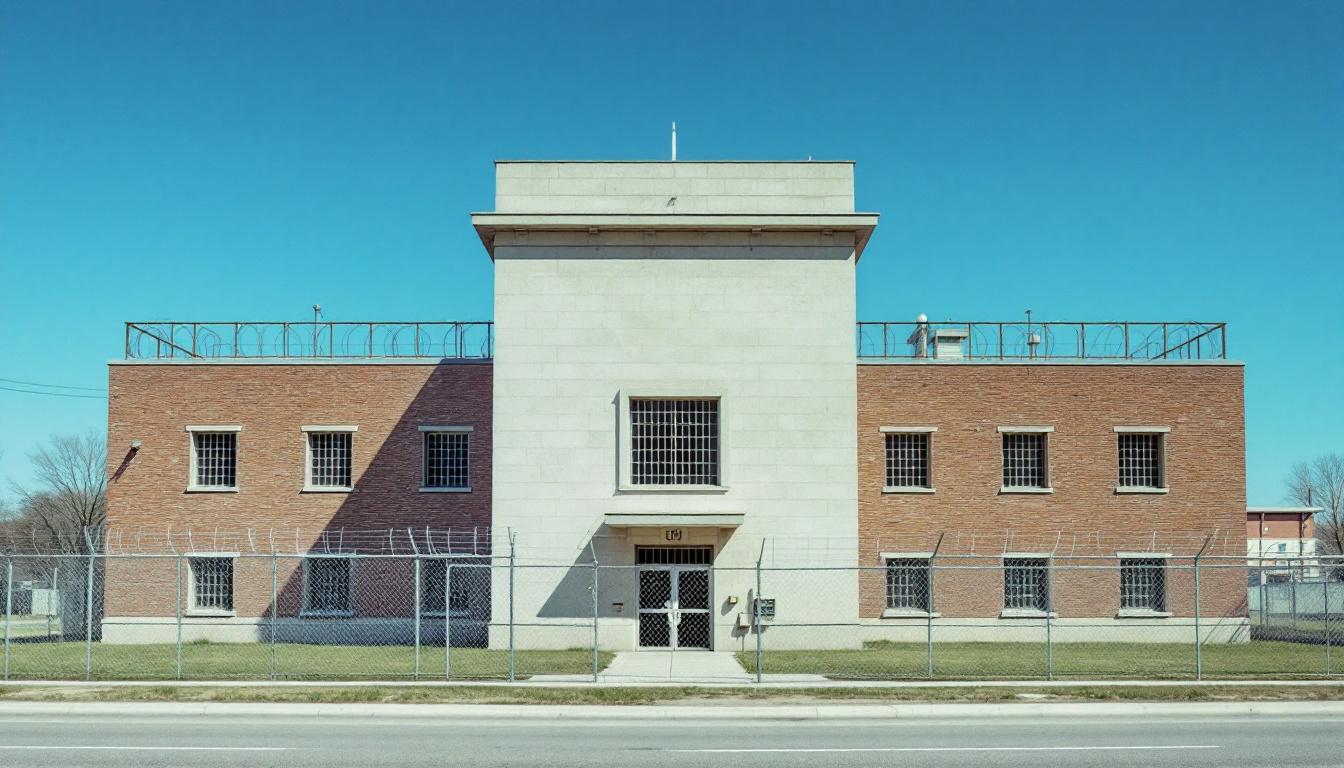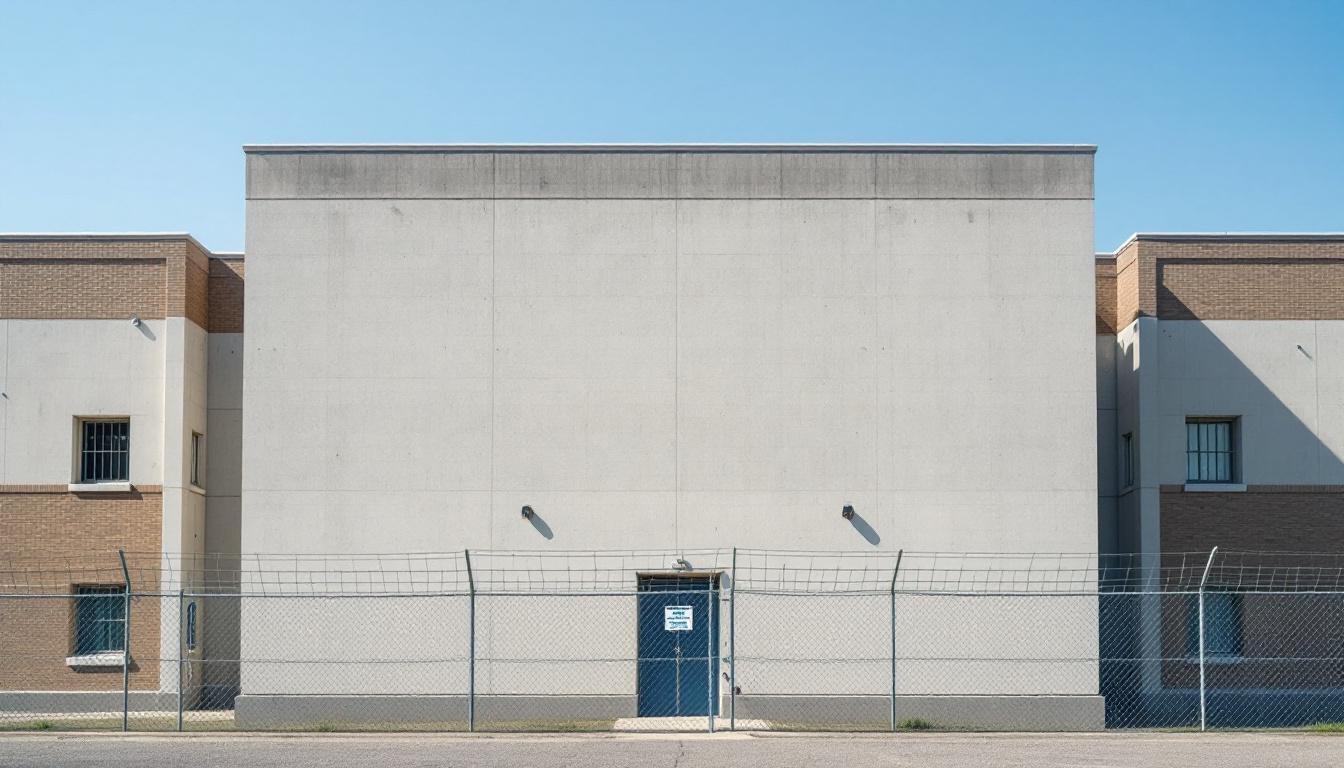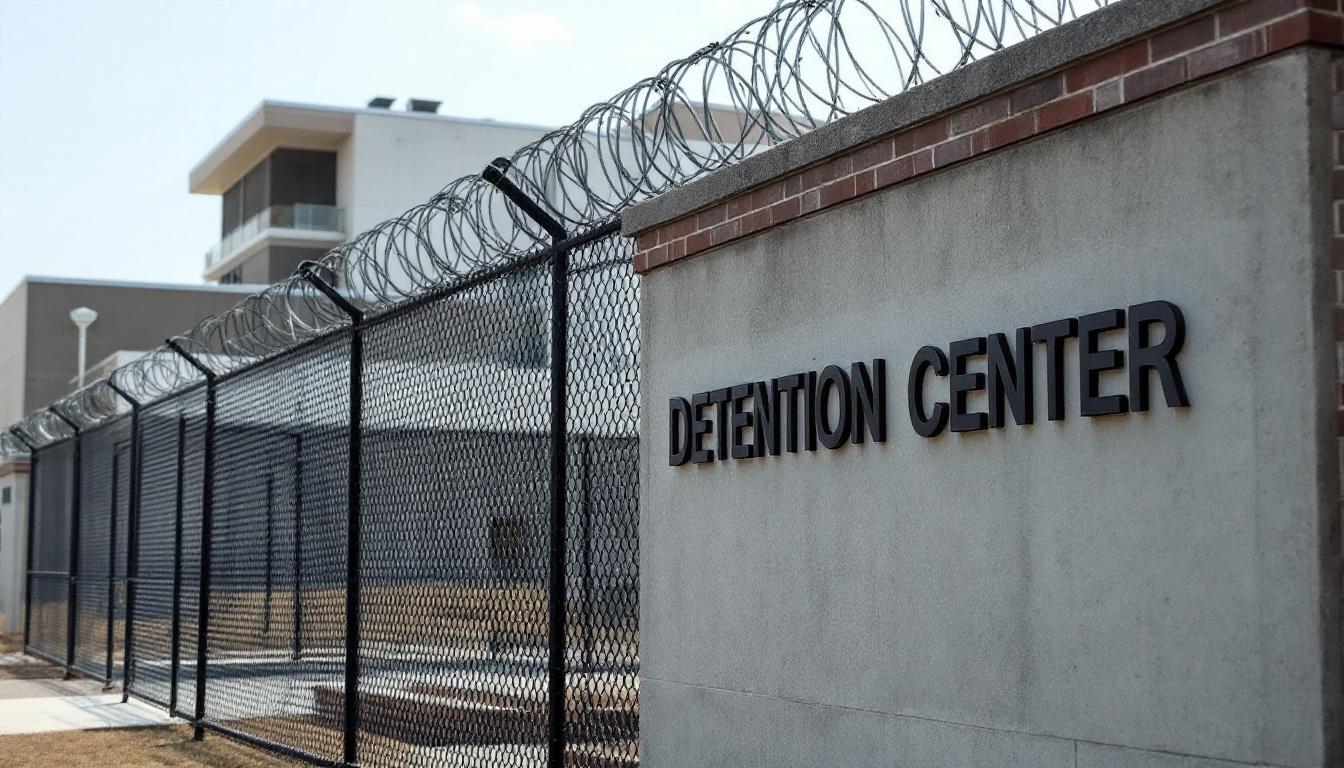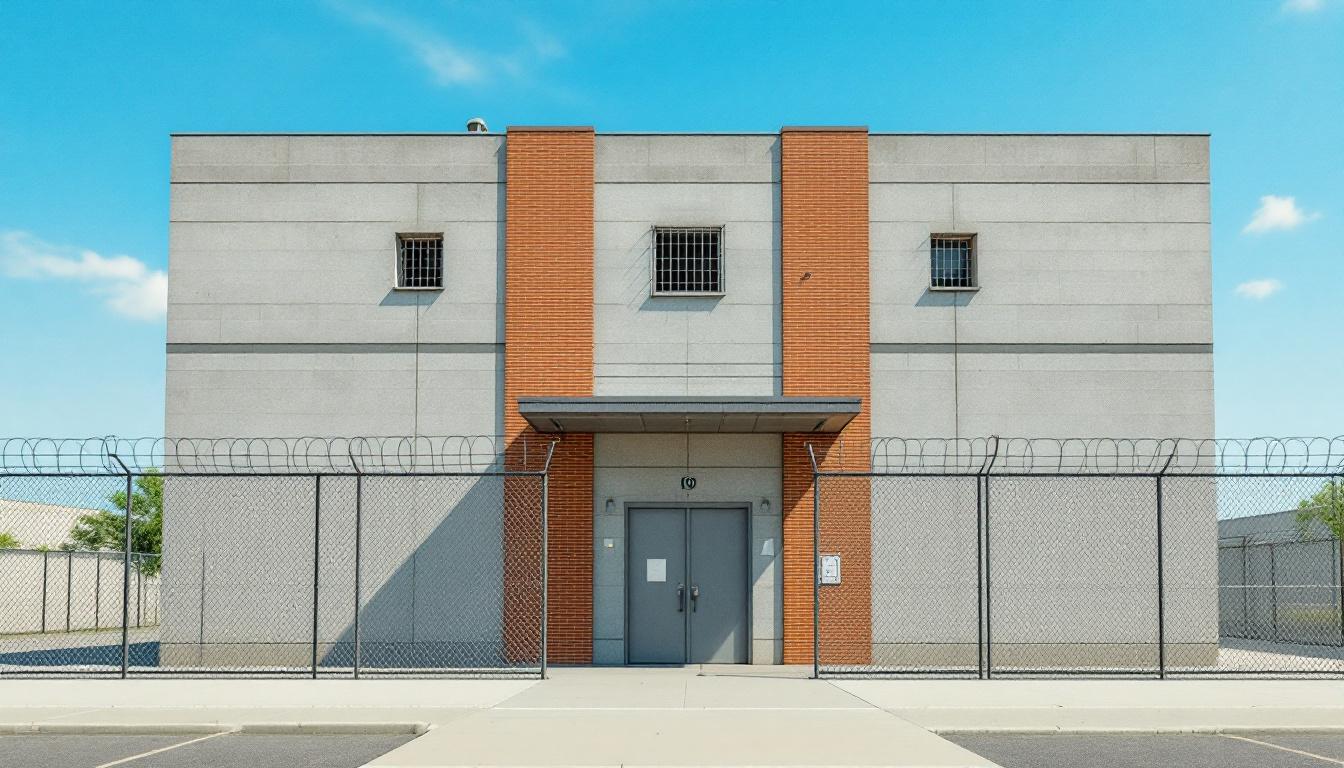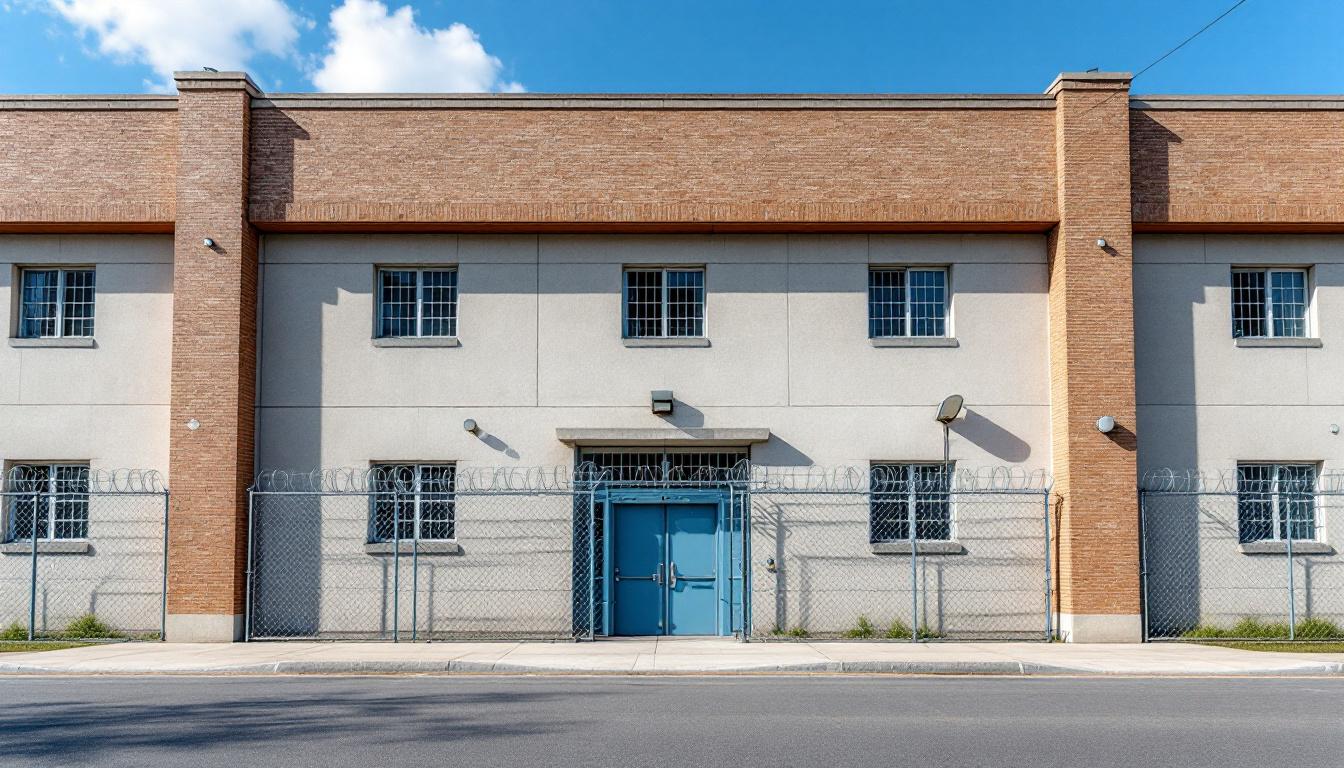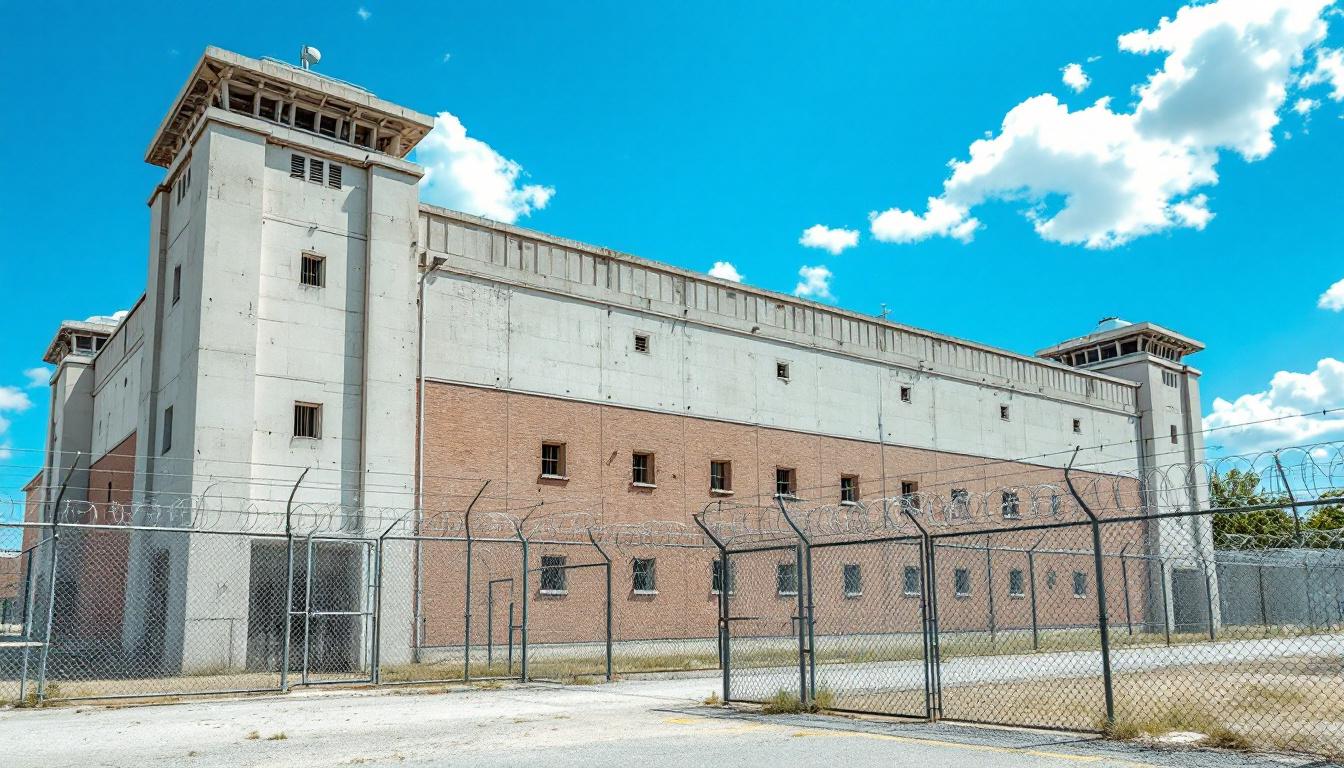
Quick Navigation
How to contact an inmate at Surry County Jail
This comprehensive guide will walk you through how to connect with an inmate at Surry County Jail. Follow the steps below to find an inmate and send letters and photos:
- Search for the inmate using our search tool below
- Create your account or log in to Penmate
- Write your message (up to 6,000 characters)
- Send instantly - inmates receive printed copies daily
Find an Inmate
Search for an inmate to start communicating today
Tip: You can search by first name, last name, or inmate ID number
To contact a person at Surry County Jail start by searching for the person on the official facility website. Perform a search by following these steps:
- Step 1: Enter their first name and last name into the search form and click "Search"
- Step 2: Locate their inmate record
- Step 3: Write down their Inmate ID and any housing information provided
Important! Be sure to enter the person's full name. Nicknames should not be used.
How to Send Messages to Inmates

You can use your phone or computer to send emails, letters, and photos to an inmate. Messages are sent electronically to inmate tablets or kiosks at the facility. If you would like to send a message, start by searching for an inmate at Surry County Jail.
Sending Photos and Postcards

A great way to send love and support to a loved one at Surry County Jail is to send photos and postcards. It only takes a few minutes to send photos from your phone and it makes a huge difference. You can also mail postcards with words of support and inspiration, or design your own postcard for special moments like birthdays and holidays.
Important! Be sure not to send any explicit photos or they may not be approved by the facility. You can also use a photo printing app like Penmate to make sure your photos are printed at the correct size (4x6 or 3x5) and are mailed according to the rules and regulations of Surry County Jail.
Frequently asked questions about Surry County Jail
-
How long does it take to deliver a message?
If you're sending an email message your letter is usually delivered within 24-48 hours. For messages sent via mail you should expect delivery within 3-7 days. All messages will need be approved by Surry County Jail.
-
How much does it cost to send a message to Surry County Jail?
You can send a message free using your phone or mail a message via USPS for the price of a $0.60 stamp and envelope. You can also purchase credits or e-stamps from services starting at $1.99.
-
What services can I use to contact an inmate at Surry County Jail?
Penmate
You can use Penmate to send letters and photos to an inmate from your phone. It's an easy way to stay in touch during your loved one's incarceration. Use the inmate locator to find an inmate's location and contact information, then you can send messages within a few minutes.
Securus messaging
Securus may be another option for communicating with an inmate at Surry County Jail. You can create a friends and family account and purchase credits to send messages. All messages will be reviewed and must be approved by the facility.
JPay
Some county jails and state prisons may support sending messages with JPay. You must register an account with the system, find your loved one, and purchase stamps to send messages. For some locations you can also attach photos.
Smart Jail Mail
You may also check if Smart Jail Mail is available at Surry County Jail. Smart Jail Mail is operated by Smart Communications and has contracted with some state and county jails. After purchasing credits, your messages and photos are sent to the facility, printed out, and then handed out to your loved one.
-
What is the mailing address of Surry County Jail?
Mailing address:
Surry County Jail
218 N Main St
Dobson, NC 27017
Phone: (336) 401-8975Business hours:
- Monday: Open 24 hours
- Tuesday: Open 24 hours
- Wednesday: Open 24 hours
- Thursday: Open 24 hours
- Friday: Open 24 hours
- Saturday: Open 24 hours
- Sunday: Open 24 hours
-
What are the visiting hours at Surry County Jail?
Visiting hours at Surry County Jail vary by housing unit and security level. Generally, visits are scheduled on weekends and holidays, with some facilities offering weekday visits. Contact the facility directly at (336) 401-8975 or check their website for the current visiting schedule. Visits typically last 30-60 minutes and must be scheduled in advance.
-
What items are prohibited when sending mail to Surry County Jail?
Prohibited items typically include: cash, personal checks, stamps, stickers, glitter, glue, tape, staples, paperclips, polaroid photos, musical or blank greeting cards, hardcover books, magazines with staples, and any items containing metal or electronics. Only send letters on plain white paper with blue or black ink. Photos must be printed on regular photo paper (no Polaroids). Always check with Surry County Jail for their specific mail policies.
-
How do I send money to an inmate at Surry County Jail?
You can send money to an inmate at Surry County Jail through several methods: 1) Online using JPay, Access Corrections, or the facility's approved vendor, 2) Money orders mailed directly to the facility with the inmate's name and ID number, 3) Kiosks located in the facility lobby, or 4) Over the phone using a credit or debit card. Fees vary by method, typically ranging from $2.95 to $11.95 per transaction.
-
Can I schedule a video visit with an inmate at Surry County Jail?
Many facilities now offer video visitation as an alternative to in-person visits. At Surry County Jail, video visits may be available through services like Penmate, Securus Video Connect, GTL, or ICSolutions. Video visits typically cost $10-20 for 20-30 minutes and must be scheduled in advance. You'll need a computer or smartphone with a camera and reliable internet connection. Contact the facility for their specific video visitation policies and approved vendors.
-
What identification do I need to visit an inmate at Surry County Jail?
All visitors must present valid government-issued photo identification such as a driver's license, state ID, passport, or military ID. Minors must be accompanied by a parent or legal guardian who can provide the minor's birth certificate. Some facilities require visitors to be on the inmate's approved visitation list, which may require a background check. Contact Surry County Jail for specific ID requirements and visitor approval procedures.
-
How can I find out an inmate's release date?
To find an inmate's release date at Surry County Jail, you can: 1) Use the online inmate search tool if available, 2) Call the facility's records department, 3) Contact the inmate's case manager or counselor, or 4) Have the inmate provide this information during a call or visit. For privacy reasons, some facilities only release this information to immediate family members.
Facility Overview
Official Website

About Surry County Jail
Nestled in the heart of Dobson, North Carolina, this correctional facility serves as a cornerstone of Surry County's commitment to public safety and community restoration. The Surry County Jail, NC operates with a philosophy centered on providing structured support while residents work toward positive life changes, recognizing that meaningful rehabilitation often begins with addressing the underlying factors that contribute to criminal behavior.
As an integral component of North Carolina's broader correctional network, this facility typically focuses on connecting residents with educational opportunities, substance abuse counseling, and vocational training programs that may help prepare them for successful reintegration into their communities. The staff generally emphasizes creating an environment where residents can access mental health services, participate in life skills development, and maintain important family connections through visitation and communication programs. These comprehensive services often work together to support individuals during their incarceration while building foundations for long-term success.
The facility's approach to corrections reflects the evolving understanding that effective rehabilitation requires addressing multiple aspects of an individual's circumstances. Through partnerships with local organizations and service providers, residents may have access to religious services, library resources, and pre-release planning assistance that can help smooth their transition back into the community. This NC correctional facility continues to adapt its programming to meet the diverse needs of those in its care while maintaining the security and safety standards essential to its mission.
Programs & Services
Comprehensive educational initiatives form the cornerstone of rehabilitative efforts, with residents gaining access to structured learning opportunities that address fundamental academic deficiencies while building practical skills for successful community reintegration. The facility's approach emphasizes personalized learning pathways, recognizing that each resident arrives with distinct educational backgrounds and career aspirations that require tailored intervention strategies.
Educational services typically encompass foundational literacy programs alongside GED preparation courses, enabling residents to achieve essential academic credentials that may have previously remained elusive. Furthermore, vocational training initiatives often include specialized instruction in culinary arts, where residents develop professional food service skills through hands-on kitchen operations, and HVAC certification programs that provide technical expertise in heating, ventilation, and air conditioning systems. These comprehensive vocational offerings may deliver industry-relevant training that directly correlates with employment opportunities upon release, creating tangible pathways toward economic stability.
Therapeutic initiatives addressing substance abuse challenges often provide residents with evidence-based treatment modalities, including group counseling sessions and individualized recovery planning that targets the underlying factors contributing to criminal behavior. Furthermore, creative writing programs serve as innovative support services, offering residents opportunities for emotional expression and personal reflection while developing communication skills that enhance their ability to articulate experiences and goals. These multifaceted initiatives collectively create an environment where residents can address personal challenges while acquiring practical competencies essential for successful community reintegration.
Daily Life & Visitation
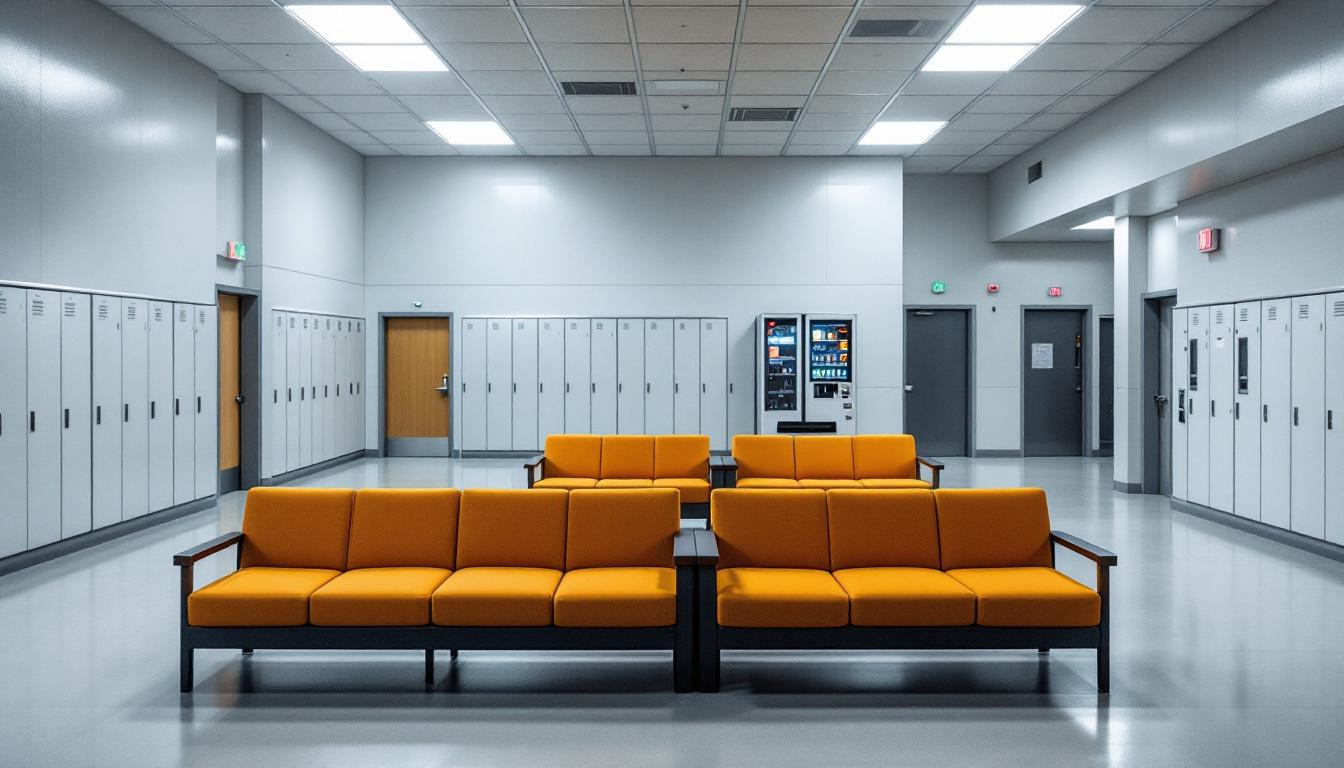
The rhythmic cadence of scheduled activities now anchors each day within the facility's walls, where residents regularly find themselves moving through a carefully orchestrated sequence of meals, programming, and supervised activities. This structured approach typically begins before dawn and continues through evening hours, with residents generally following established routines that may include work assignments, educational programming, and designated recreation periods. The predictable nature of these daily schedules often delivers a sense of stability that many residents find helpful in managing their time while incarcerated.
Furthermore, living accommodations at the facility typically consist of shared housing units where residents are assigned beds and provided with basic necessities for their stay. Meals are generally served at designated times in common dining areas, with residents usually receiving three meals per day that meet nutritional standards. The facility may offer recreational opportunities such as television viewing in common areas, outdoor exercise periods when weather permits, and access to reading materials through a library system. Although space and resources can be limited, residents often have opportunities to participate in various activities that help structure their days.
The facility typically maintains visitation policies that allow residents to maintain connections with family members and loved ones through scheduled visits and phone calls. Work assignments within the facility may include kitchen duties, cleaning responsibilities, and maintenance tasks that help residents contribute to daily operations while developing routine work habits. Additionally, residents generally have access to commissary services where they can purchase approved personal items, and the facility often provides programming opportunities that may include educational classes, substance abuse counseling, or other structured activities designed to support rehabilitation goals during their incarceration.
Ready to Connect?
Start communicating with your loved one today
Search for an Inmate
